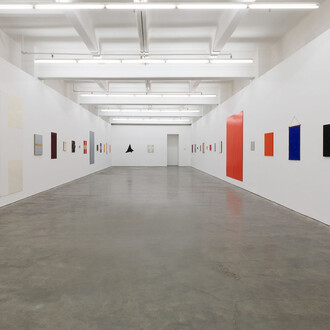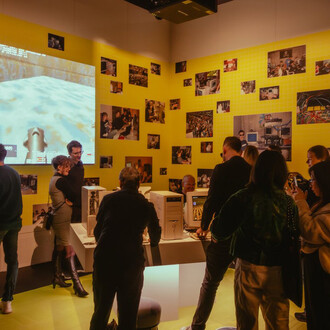In this exhibition, paintings of black swans articulate the dilemmas of creativity using quotes from numerous sources ranging from weighty literary voices to investment brochures.
A visual quote of Jan Asselijn’s Threatened swan, 1650, quotes Macbeth: “O horror, horror, horror! Tongue nor heart cannot conceive nor name thee!” whilst a quote of Jan Weenix’s Dead swan, 1716, is from Aristophanes: “Quickly, bring me a beaker of wine, so that I may wet my mind and say something clever.” In this case, not dead but dead drunk.
These swans function as allegories of creativity, as they do of the concept of the Black Swan event; that unpredictable, paradigm-shifting occurrence that changes everything.
Various aspects of creativity are simultaneously concealed and revealed. Aristophanes’ call for wine to “wet the mind” represents the deliberate cultivation of conditions that might summon the unexpected creative leap, a divine intoxication, whilst Shakespeare’s cry of “horror, horror, horror!” captures the moment when creativity encounters something so unprecedented that language itself fails.
All the paintings illustrate the same dilemma: when the problems of creativity become the subject itself. This exhibition is about creativity emerging from apparent emptiness or ‘mental block’; art coming not from having ideas but from surrendering the need to have them.













